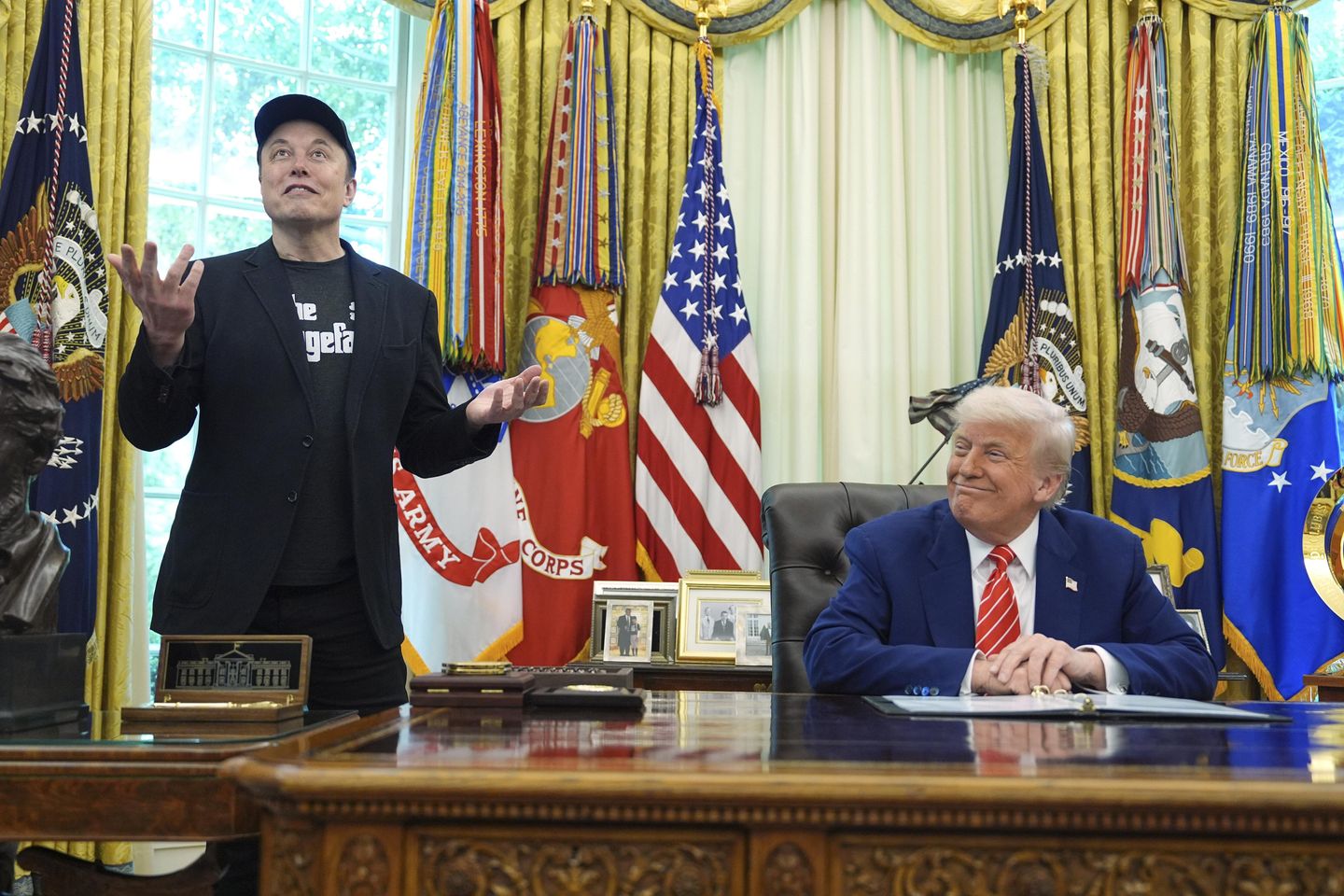
Don’t miss the full story from our staff writers, whose reportage is the basis of this article.
Elon Musk concluded his 134-day tenure as head of the Department of Government Efficiency (DOGE) last week, achieving only a fraction of his ambitious spending reduction goals. Despite initially promising to cut $2 trillion from federal spending, Mr. Musk’s team identified approximately $200 billion in potential cuts — only 10% of his original target, with actual implemented cuts likely being much smaller.
During his time leading DOGE, Mr. Musk and his team of software engineers and CEOs uncovered numerous examples of questionable federal spending. They eliminated funding for projects including ice-skating drag queen performances, green energy initiatives in Vietnam and a $12 million pickleball complex in Las Vegas. The team also discovered $59 million in FEMA spending on luxury hotel rooms for illegal immigrants in New York City and reformed an outdated federal retirement system stored in a Pennsylvania limestone mine.
DOGE’s database scrubbing revealed significant irregularities, including 20 million Social Security records for people allegedly over 100 years old, leading to the deactivation of more than half a million government credit cards across 32 agencies.
However, Mr. Musk faced intense criticism and legal challenges throughout his tenure. Several cuts were blocked or reversed by federal judges, and activists vandalized Tesla dealerships while the company’s stock plummeted. Critics accused him of targeting essential programs.
Some of DOGE’s claimed savings proved inflated or inaccurate. A reported $8 billion cut from an ICE diversity initiative actually amounted to only $8 million, and claims about stopping $50 million in funding to Hamas were later corrected — the money was actually medical aid grants for Gaza that included contraception funding.
President Trump praised Mr. Musk’s “historic” efforts and suggested he would continue as an adviser while DOGE operations continue under new leadership. Mr. Musk acknowledged the immense difficulty of cutting federal spending, describing the “uncaring nature of bureaucracy” where complaints often lead managers to approve questionable expenditures rather than face scrutiny.
Despite mixed public support and Democratic accusations of attacking critical programs, conservative analysts view DOGE’s work as a necessary first step. A $9.4 billion rescission package is headed to Congress, with additional cuts planned. While modest compared to the projected $7 trillion 2026 federal budget, supporters argue these efforts represent crucial progress in addressing the nation’s $36 trillion debt and $1.8 trillion deficit.
Read more: Elon Musk’s historic role showed that even a chainsaw can’t cut federal bloat
This article is written with the assistance of generative artificial intelligence based solely on Washington Times original reporting and wire services. For more information, please read our AI policy or contact Ann Wog, Managing Editor for Digital, at awog@washingtontimes.com
The Washington Times AI Ethics Newsroom Committee can be reached at aispotlight@washingtontimes.com.












